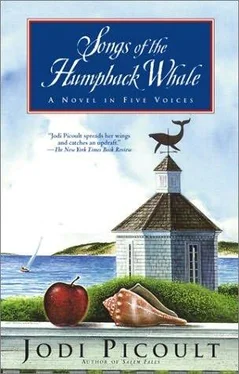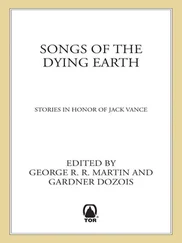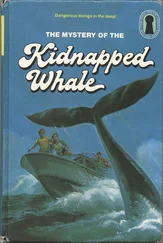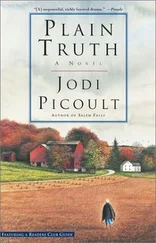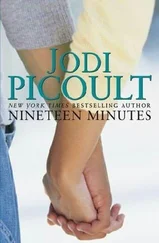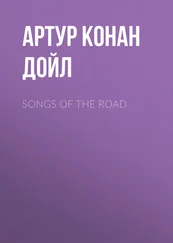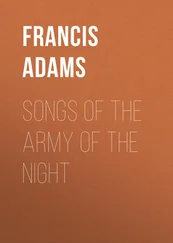“Have I ever let you down?”
No, and because he hasn’t, I start to cry. “Talk to me,” I say.
So my brother begins to talk, endless and lovely and interconnected. “Rebecca will love it here. It’s an orchard, a hundred acres. And Sam won’t mind that you’re coming-he owns the place- awfully young for a controlling farmer but his parents have retired to Florida. I’ve learned a lot from Sam.” I motion to Rebecca to come closer, and when she does I hold the phone between us so that she can hear. “We grow Prairie Spys, Cortlands, Imperials, Lobos, McIntosh, Regents, Delicious, Empire, Northern Spy, Prima, Priscillas, Yellow Delicious, Winesaps. At night when you go to bed, you hear the bleating of sheep. In the morning when you lean out your window, you smell cider and sweet grass.”
Rebecca closes her eyes and leans against the gum-studded phone booth. “It sounds terrific,” I say, and to my surprise, my voice is no longer quivering. “I can’t wait to see you.”
“Take your time. I’m not going to chart your course by the fastest highways. I’m going to send you to places I think you need to go.”
“What if-”
“Oliver won’t find you. Trust me.”
I listen to Joley’s breathing on the other end of the line. The atmosphere changes in La Jolla. The salt in the air turns molecular; the wind reverses its course. Two boys in the back seat of a Jeep sniff at the night sky like bloodhounds.
“I know you’re scared,” Joley says. He understands. And with that admission, I feel myself slip, limp, into the careful hands of my brother.
“So when we get to Gila Bend,” Rebecca says, “Uncle Joley is going to meet us?” She is trying to work out the particulars; she is that kind of girl. Every fifty miles or so, when she can’t get anything but static on the AM radio, she asks me another logistical question.
“No, he’s going to send us a letter. I guess we’re going to see the sights on the way to Massachusetts.”
Rebecca slips her feet out of her sneakers and presses her toes against the front window. Frost halos form around her pinkies. “That doesn’t make any sense. Daddy will find us by then.”
“Daddy will look for the shortest distance between two points, don’t you think? He wouldn’t head for Gila Bend, he’d head for Vegas.” I am impressed with myself-Vegas was a shot in the dark for me, but from Rebecca’s face I can tell I have given a more direct location.
“What if there’s no letter? What if this takes us forever?” She scrunches down in the seat so that her neck folds into several chins. “What if they find us, weeks from now, dying of dysentery or lice or heartworm in the back seat of a Chevy wagon?”
“Humans don’t get heartworm. I don’t think.”
I catch Rebecca staring at my wrists, which rest against the large steering wheel. They have flowered into bruises, saffron and violet, like big bangle bracelets that cannot be removed. “Well,” I say quietly, “you should see what his cheek looks like.”
She slides across the seat and cranes her neck to see the driver’s perspective. “I hope I never have to.” She is beautiful at almostfifteen. Rebecca has straw-straight yellow hair that springs to the crest of her shoulders; her summer skin is the color of hazelnuts. And her eyes are the strangest combination of Oliver’s blue and my grey-they are a violent sort of green, like the hue of a computer screen, transparent, alarming. She is in this for the adventure. She hasn’t considered what it means to leave your father behind, for a little while or forever. What she sees is the drama-the explosion, the slamming doors, the once-in-a-lifetime opportunity to live out the plot of a youngadult novel. I cannot say I blame her, and I cannot condone bringing her along. But leaving her behind was not a viable alternative.
I’m crazy about her. Since day one, she has depended on me, and, remarkably, I have yet to let her down.
“Mom,” Rebecca says, annoyed. “Earth to Mom.”
I smile at her. “Sorry.”
“Can we pull over?” She looks at her watch, a leather and gold Concord, a gift from Oliver several Christmases ago. “It’s only ninethirty, and we’ll be there by midnight, and I really need to pee.”
I don’t know how Rebecca has figured on midnight, but she’s been calculating with a ruler and a little road map she found wedged in the back seat. Geography, Mom, she told me. We all have to take it in Social Studies.
We pull aside when the road develops a shoulder and lock up the car. I go with Rebecca into the woods to go to the bathroom- I’m not about to let her out on the side of the road in the middle of night. We hold hands and try not to step on poison ivy. “Nice out,” Rebecca says, as she is peeing. I’m holding her forearms for balance. “Isn’t it warmer than usual?”
“I forget you’re a California girl. I have no idea if it’s warmer than usual. Usual on the East Coast is fifty-five degrees at night.”
“What am I going to use?” Rebecca says, and I look at her blankly. “Toilet paper?”
“I don’t know.” She reaches for leaves on the ground and I grab her wrist. “No! You don’t know what that stuff is; it could be sumac, or God knows what, and that’s the last thing you need: not to be able to sit on a driving trip cross-country.”
“So what do I do?”
I will not leave her alone. “Sing,” I tell her.
“What?”
“Sing. You sing and I’ll run up to the car for a tissue and if I hear you stop singing I know you’re in trouble.”
“That’s stupid,” Rebecca says. “This is Arizona, not L.A. No one’s out here.”
“All the more reason.” Rebecca stares at me, incredulous, and then begins to sing a rap song. “No,” I tell her, “sing something I know, something where I know the order so I won’t get confused.”
“I don’t believe this. What’s in your repertoire, Mom?” She loses her balance for a moment, and stumbles, cursing.
I think for a moment, but there is little we have in common in the realm of music. “Try the Beach Boys,” I suggest, figuring that after fifteen years in California something has to stick.
“Well, the East Coast girls are hip,” Rebecca warbles, “I really dig those clothes they wear . . .”
“That’s great,” I say, “and the northern girls?”
“With the way they kiss . . .”
I sing with her, walking backwards as far as I can, calling on her to raise the volume of her voice as I get farther and farther away. When she forgets the words, she sings syllables, da-da-da. When I can see the car I break into a run, and find a tissue that I’d used to blot lipstick, and bring it back to Rebecca.
“I wish they all could be California girls,” she says, as I run up to her. “You see? No one came near me.”
“Better safe than sorry.”
We lie down on the hood of the Chevy, our backs on the slope of the windshield. I try to listen for the bends of the Colorado River, which we passed several miles back. Rebecca tells me she is going to try to count the stars.
We pass the last Yodel between us like a joint, taking smaller and smaller bites at the end so that neither one of us will be accused of finishing it. We argue about whether or not a helicopter’s lights are a shooting star (no) and if Cassiopeia is out at this time of year (yes). When the cars are not passing us, it is almost quiet, save for the hum of the vibrating highway.
“I wonder what it is like here during the day,” I say aloud.
“Probably a lot like it is now. Dusty, red. Hotter.” Rebecca takes the Yodel out of my fingers. “You want it?” She pops it into her mouth and squashes it against her front teeth with her tongue. “I know, disgusting. You think it gets really hot here, hot like in L.A., where the roads breathe when you step on them?”
Читать дальше
